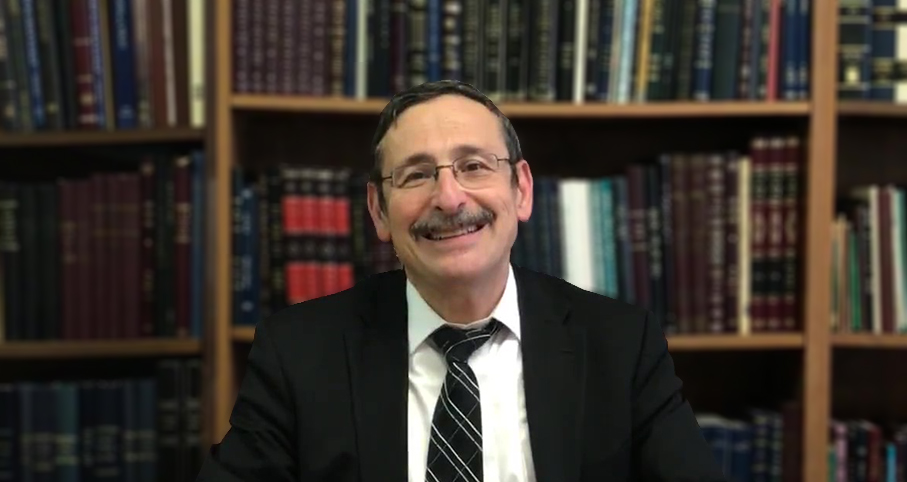Beit Midrash
- Sections
- Chemdat Yamim
- Bemare Habazak - Rabbis Questions
Answer: We will survey halachic elements of the topic that relate to cases where it is readily understandable why a serious observant Jew would feel a need or a strong desire to have surgery. Needless surgery or, in the other direction, cases of gross malformations are, respectively, very different matters from a halachic and a philosophical perspective.
The fundamental issue that the poskim discuss is that of damaging oneself. The gemara (Bava Kama 91b) refers to a machloket among Tannaim whether one is allowed to damage himself, and the Rambam (Chovel U’mazik 5:1) and Shulchan Aruch (Choshen Mishpat 420:1) rule it is forbidden. The question is whether totally elective surgery done for an understandable reason is included in the prohibition. On the one hand, in the immediate stage, surgery includes cutting the body, and Tosafot (Bava Kama 91b) says that one may not damage himself even for gain. On the other hand, Chazal allowed cutting the skin for certain purposes, including bloodletting and removing splinters (Yevamot 72a; Sanhedrin 84b). Some say that a procedure done to correct a blemish, even if it is just a significant aesthetic one and not a classic medical problem, is considered healing and included in the doctor’s mandate to heal (Mishneh Halachot IV:266, based on Ketubot 74b). Others infer from the Rambam’s language that only violent damage to the body is forbidden, not constructive cutting done to improve it (Igrot Moshe, Choshen Mishpat 5:66; see Minchat Shlomo II:82 and Minchat Yitzchak VI;105). There is a difference between the two approaches to leniency in a case where the initial situation is not one of a blemish, while the surgery can still provide substantial and not frivolous improvement. Yabia Omer (VIII, CM 12) reasons that one should distinguish between different levels of gain.
Another issue is the potential danger to life from surgery, specifically one that requires general anesthetic. Objectively, in our times, the chance of death from simple surgery is tiny (assuming a responsible choice of medical practitioners). While we do not generally take stands on medical questions, one could say that the danger is roughly equivalent to that from driving a few hundred miles. While there have been poskim, at least decades ago (Minchat Yitzchak ibid., Aseh Lecha Rav IV:65), who have forbidden cosmetic surgery that requires anesthetic on those grounds, this is a difficult position to take (see Yabia Omer ibid.).
Some poskim suggest an interesting distinction between the genders. Cases in which men act with concern about their own appearance to a degree that is not normal for men raise questions of a prohibition of lo yilbash. While this literally refers to cross-dressing, Chazal apply it to several activities that are normal specifically for the opposite gender. One gemara (Shabbat 50b) says that it is permitted for a man to remove certain scabs from his face due to pain, but it is forbidden for beautification. Rashi (ad loc.) explains that the problem is lo yilbash. Tosafot (ad loc.) says that pain does not have to be physical but that if a man is embarrassed to be among people in that state, "there is no greater pain than that." Therefore, while there is likely to be a difference between genders regarding the extent of blemish that justifies intervention, surgery can be permitted for a man whose aesthetic problems would be disturbing for the average man (Mishneh Halachot IV:267; Minchat Shlomo ibid.).
The Tzitz Eliezer (XI:41) claims that performing surgery to change one’s G-d-given appearance (excluding the results of illness or injury) is improper intervention in the way Hashem created the world. Most of his contemporaries reject or ignore this position regarding cases where patient’s feelings are understandable. However, it is worthwhile to add this philosophical point to the above halachic ones regarding cases where there is absolutely nothing wrong with a person’s appearance.

Bemare Habazak - Rabbis Questions (627)
Various Rabbis
107 - Purim in Transit
108 - Cosmetic Surgery
109 - Waking Up on a Plane to Daven
Load More

Ask the Rabbi: Drawer with Aluminum Foil Roll
Rabbi Daniel Mann | Cheshvan 5786

Ask the Rabbi: Transporting Children before or after Shacharit?
Rabbi Daniel Mann | Kislev 5786

Ask the Rabbi: Kohen Who Has Trouble Standing
Rabbi Daniel Mann | Cheshvan 5786

Ask the Rabbi: Forgot to Remove Tefillin Before Musaf of Rosh Chodesh
Rabbi Daniel Mann | Kislev 5786

Rabbi Daniel Mann

Cooking for Shabbat at the End of Yom Tov
Iyar 20 5783

Giving an Envelope on Shabbat to Use for Donations
5773

Tazria Metzora Question
5772






















